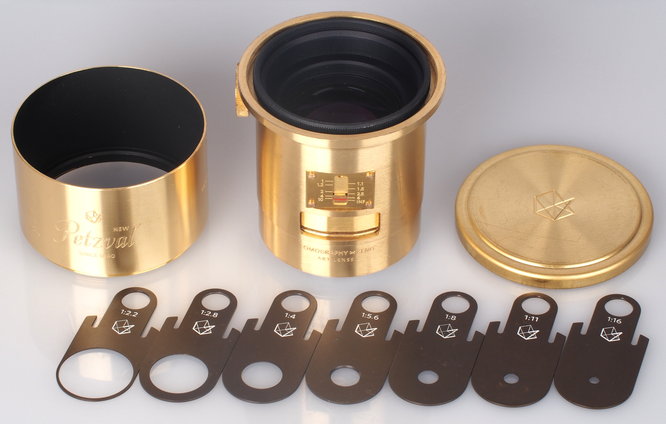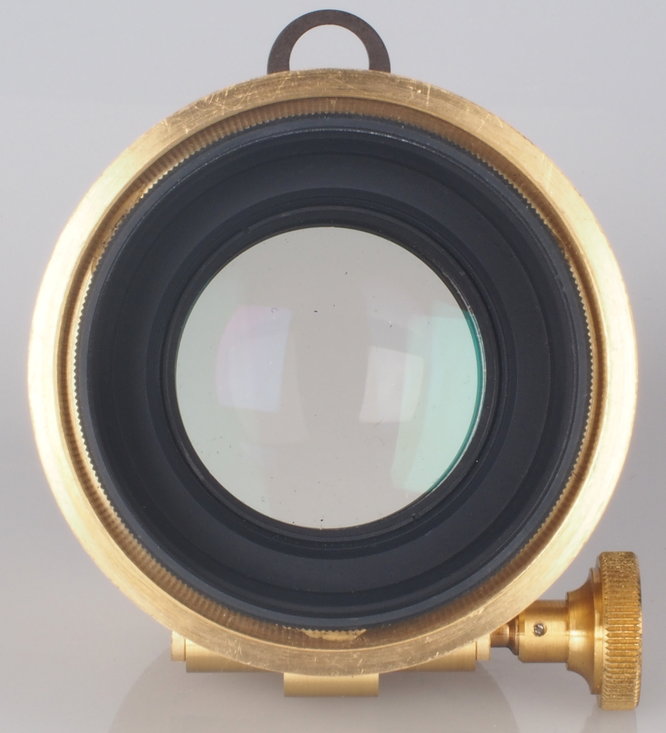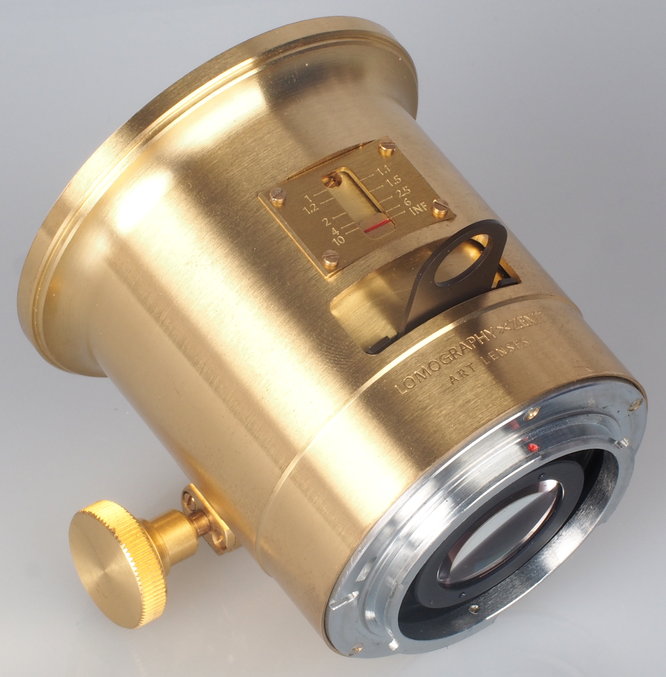Lomography x Zenit 85mm f/2.2 Petzval Art Lens Review
Lomography Petzval 85mm f/2.2 Art Lens Handling and Features

The build quality of this lens is a mixed bag. First impressions are good when greeted with the varnished brass exterior, which feels solid. Thanks to the brass exterior, the lens has a fair bit of weight to it. Even so, it balances well with the Nikon D600 body used for testing. The brass exterior is an acquired taste. Some people will love the look of the lens, others won't be so enamoured with it.
Focusing is performed by a geared system, operated by a wheel that sticks out of the bottom of the lens barrel. The focus mechanism has a very short throw, moving from infinity, down to one metre is under a complete turn of the brass focusing wheel. This alone can make manual focusing tricky, but add in that the geared mechanism doesn't feel well machined at all and accurate focusing is a challenge, to say the least. The focusing wheel doesn't operate smoothly on the sample supplied for testing, having lots of play in the mechanism, and tightening up at a seemingly random point in the focus range. Also, there is no damping applied to the focus mechanism, so the lens elements move about freely in the lens if tilted forwards or back, which makes applying fine focus adjustments a nightmare, even when used on a tripod.

There is a distance scale machined into the top of the lens and a slot for the supplied aperture plates. As this lens uses the Waterhouse Aperture system, the aperture is changed by swapping one of the supplied 'stops' that fit in this machined slot. On our test sample, the aperture plates are a loose fit, and can easily drop out of the lens if care isn't taken. As the aperture plates are separate, if you were to misplace one, then you have effectively lost that aperture setting. As the plates are black-painted pieces of stamped metal, I can see this happening quite often. There is no information on the Lomography site on how to source replacements, and no spares are supplied with the lens. It is a completely manual lens, with no electronic contacts, so stop down metering has to be performed. Unfortunately, the aperture values stamped on the plates don't appear to correspond to the same standard as other lenses, so wild guesswork is the order of the day for gaining accurate exposures.
The design of the lens barrel incorporates a hood, which helps to shield the lens from extraneous light that may cause issues with flare. Within this deep hood section there is a 58mm filter thread, hidden away on the front of the moving lens section. The filter thread is difficult to reach unless you unscrew the hood. A brass push-fit lens cap is supplied with the lens. This is probably best left at home, as it doesn't fit securely and drops off the lens with the slightest bit of encouragement.

Add your message
Login required
Please login here or if you've not registered, you can register here. Registering is safe, quick and free.
Please login here or if you've not registered, you can register here. Registering is safe, quick and free.
photodo Stats
1102 lenses
428 MTF tests
74 in-depth photodo reviews
100+ users join each day
Help the lens community by reviewing or rating a lens today via our lens search
428 MTF tests
74 in-depth photodo reviews
100+ users join each day
Help the lens community by reviewing or rating a lens today via our lens search
Latest Lens Reviews
- Chinon 28mm f/2.8 Vintage Lens Review
- Canon EF 70-200mm f/4L IS II USM Lens Review
- Samyang AF 85mm f/1.4 EF Review
- Sigma 70mm f/2.8 DG Macro Art Review
- Samyang AF 24mm f/2.8 FE Review
- Meike 50mm f/1.7 Review
- Tamron 70-210mm f/4 Di VC USD Review
- Lensbaby Burnside 35mm f/2.8 Review
- Asahi Super Takumar 50mm f/1.4 Review
- Asahi Super-Multi-Coated Takumar 135mm f/3.5 Review
